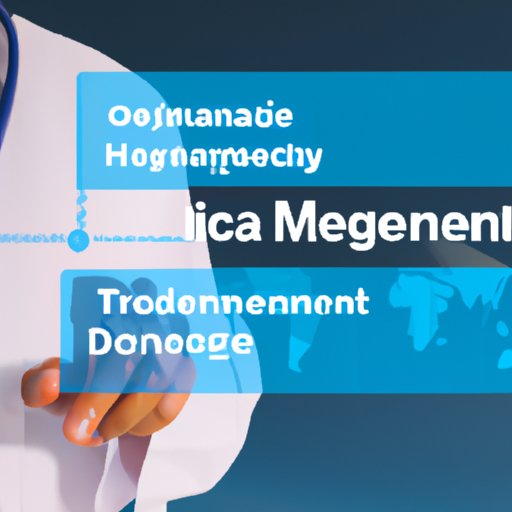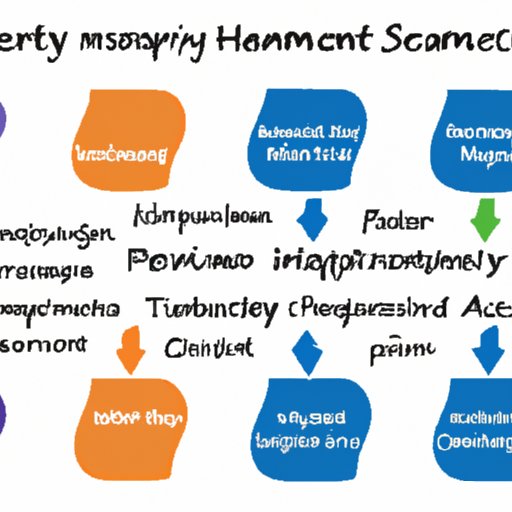Introduction
Healthcare technology management (HTM) is an essential part of providing quality care. It involves the planning, implementation, monitoring, and maintenance of medical equipment and related technologies. As healthcare organizations continue to embrace digital transformation, HTM is becoming increasingly important in ensuring that medical devices are safe, effective, and compliant with regulatory requirements. In this article, we’ll explore what HTM is, its role and benefits, how to develop and implement a healthcare technology management plan, the impact on patient care, and the future of healthcare technology management.

Exploring the Role of Healthcare Technology Management
Healthcare technology management is a specialized field dedicated to the safe, effective, and efficient use of medical devices and related technologies. The goal of HTM is to ensure that medical equipment is properly maintained and used correctly. To do so, HTM professionals must have an extensive understanding of the different types of medical devices and related technologies, as well as their function and purpose.
The role of the healthcare technology manager (HTM) is to provide leadership and support for the organization’s HTM program. This includes developing, implementing, and monitoring policies and procedures; ensuring compliance with regulatory requirements; and evaluating and improving the performance of medical devices. The HTM is also responsible for identifying, analyzing, and resolving problems related to medical devices and technologies.
The benefits of having a healthcare technology manager are numerous. HTM professionals are able to help ensure that medical devices are functioning properly, which can lead to improved efficiency and cost savings. Additionally, they can help improve the quality of care and patient safety by preventing and resolving device-related issues. Finally, they can help ensure compliance with regulatory requirements, such as those set forth by the U.S. Food and Drug Administration (FDA).
A Comprehensive Guide to Healthcare Technology Management
Creating and implementing an effective healthcare technology management plan requires a thorough understanding of the different types of medical devices and related technologies. This includes both hardware and software, such as electronic health record (EHR) systems, laboratory information systems (LIS), imaging systems, and patient monitoring systems. It’s important to understand the purpose of each device and how it fits into the overall healthcare technology ecosystem.
Once you have a basic understanding of the different types of healthcare technology, it’s time to develop a healthcare technology management plan. This plan should include a detailed assessment of the organization’s current technology needs, as well as a roadmap for future technological advancements. The plan should also include guidelines for monitoring and maintaining medical devices, as well as strategies for ensuring compliance with regulatory requirements.
Once the healthcare technology management plan has been developed, it’s time to begin implementing it. This includes setting up and configuring medical devices, training staff on the proper use of the devices, and establishing protocols for maintaining and troubleshooting the devices. Additionally, it’s important to monitor the progress of the plan and make adjustments as needed.
Understanding the Benefits of Healthcare Technology Management
One of the primary benefits of healthcare technology management is improved efficiency and cost savings. By properly maintaining medical devices, organizations can reduce downtime and minimize the need for costly repairs and replacements. Additionally, HTM professionals can help identify opportunities for streamlining processes and eliminating unnecessary steps, leading to greater efficiency.
Another benefit of healthcare technology management is increased quality of care and patient safety. Properly maintained medical devices can help ensure accurate and timely diagnosis and treatment, which can lead to improved patient outcomes. Additionally, HTM professionals can help identify potential risks associated with medical devices and take steps to mitigate them.
Finally, healthcare technology management can help organizations meet regulatory requirements. HTM professionals are able to ensure that medical devices are properly configured and maintained, as well as monitor their performance to identify any potential problems. This can help organizations avoid costly fines and other penalties for non-compliance.

The Impact of Healthcare Technology Management on Patient Care
Healthcare technology management can have a significant impact on patient care. By properly maintaining medical devices, organizations can improve access to care and health information. Additionally, patients may experience improved satisfaction due to faster diagnosis and treatment times. Finally, improved clinical outcomes are possible due to more accurate diagnosis and treatment.

The Future of Healthcare Technology Management
As healthcare organizations continue to embrace digital transformation, the role of healthcare technology management will become even more important. With emerging technologies such as artificial intelligence, virtual reality, and robotics, there are both challenges and opportunities for HTM professionals. Challenges include ensuring the safety and effectiveness of these new technologies, while opportunities include leveraging these technologies to improve patient care.
Conclusion
Healthcare technology management is an essential part of providing quality care. It involves the planning, implementation, monitoring, and maintenance of medical devices and related technologies. This article has explored what healthcare technology management is, its role and benefits, how to develop and implement a healthcare technology management plan, the impact on patient care, and the future of healthcare technology management. By understanding the importance of HTM and taking the necessary steps to create and implement an effective healthcare technology management plan, organizations can improve the quality of care and patient safety, as well as increase efficiency and cost savings.
(Note: Is this article not meeting your expectations? Do you have knowledge or insights to share? Unlock new opportunities and expand your reach by joining our authors team. Click Registration to join us and share your expertise with our readers.)
